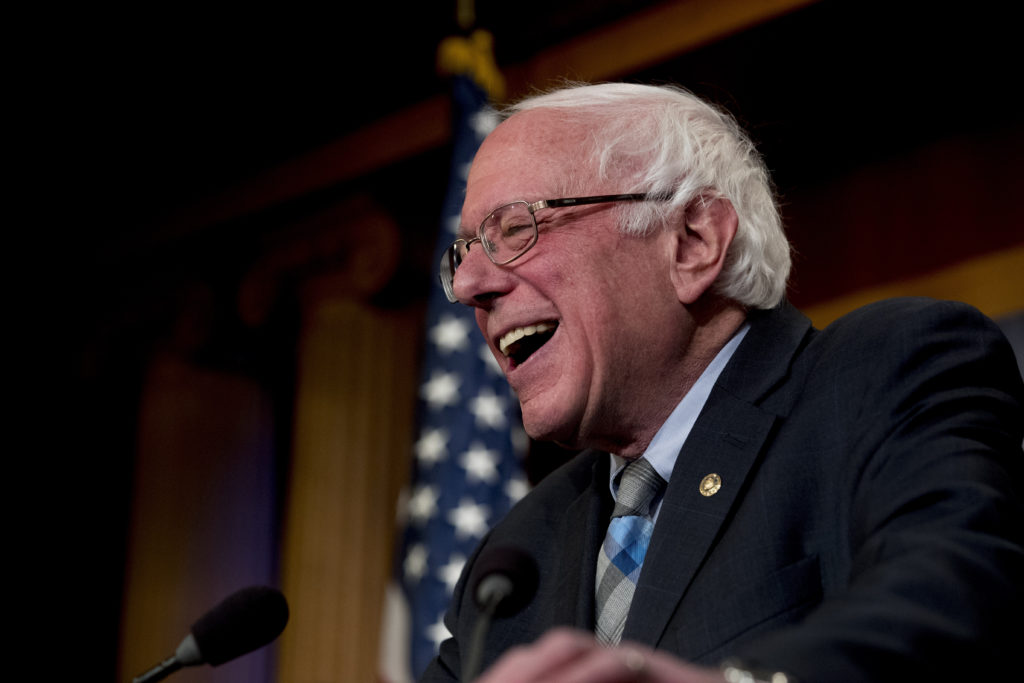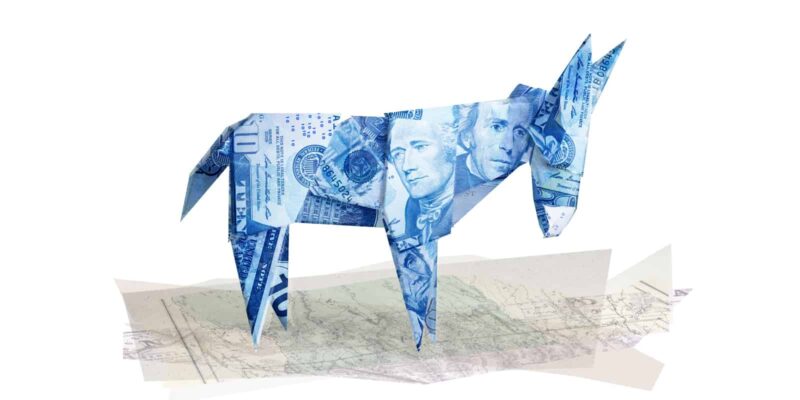This article is published in partnership with FiveThirtyEight.
Introduction
Small-dollar campaign fundraising is a notorious black box.
The Federal Election Commission releases candidates’ fundraising data regularly, but campaigns are only required to reveal the names of donors who give more than $200. Data about presidential grassroots fundraising — the small-dollar donations that candidates are always bragging about — has long been much harder to come by.
Not this year.
ActBlue, the payment processor used by all the major Democratic presidential candidates, disclosed six months of fundraising data to the FEC this week. When combined with other FEC data, it’s now possible to track between 90 and 99 percent of individual donations made to most Democratic candidates.
And it shows that Democrats are far from wearing their donors out.
At least 2.4 million people have together pumped about $209 million into the campaigns of major Democratic presidential contenders during the first half of 2019, according to an analysis of campaign finance data by the Center for Public Integrity and FiveThirtyEight.
That’s a jump of more than 70 percent over the amount that individual donors gave to presidential candidates of both parties combined at the same point in 2015.
The analysis also indicates that more people are giving now than did a few months ago.
Of the $209 million total given by individual donors, full donor information was unavailable for about $13 million worth of donations. Among the $196 million for which we have detailed donor information, we found that the number of Democratic presidential campaign donors who gave in June, the last month of the second fundraising quarter, was 25 percent higher than the number who gave in March, at the end of the first fundraising quarter.
“The ceiling on that is very, very high, and I don’t think we’re anywhere close to it,” said Erin Hill, the executive director of ActBlue.
The Center for Public Integrity/FiveThirtyEight analysis of the $196 million for which we have full donor information found:

- Nearly one out of every three donors who have given to any presidential campaign have donated to Sen. Bernie Sanders, a Vermont Democrat who has by far the largest number of donors of any of the Democratic candidates. (That doesn’t mean they gave exclusively to Sanders — many people have given money to multiple Democratic candidates.)
- About one in five donors have given to two or more Democratic presidential candidates so far this year. About 150,000 people gave to three or more Democratic candidates. This is likely at least partially an effect of the Democratic National Committee requiring candidates to surpass donation thresholds as one criterion for participating in presidential debates.
- Slightly more than $1 out of every $3 given to Democratic presidential candidates came from donors in California or New York. Those states are reliable Democratic ATMs.
President Trump, who began raising money for his re-election campaign as soon as he took office, has so far raised about $135.6 million toward the 2020 election. That includes tens of millions from small-dollar donors (those who give a total of $200 or less), and his large fundraising numbers, coupled with token primary opposition and his control of the party, have so far given him a financial advantage.
But the sprawling field of Democratic presidential candidates has combined to outraise him, despite his head start, suggesting that if the party’s donors consolidate behind the eventual nominee, Democrats stand ready to tap a massive pool of proven — and recent — donors keen on defeating Trump.
Increased capacity
In interviews, donors said they are intentionally giving early in the presidential primary process this time, often to multiple candidates, because they want to send a message about Democratic strength and make sure they help shape the primary outcome.
“Money kinda talks,” said Patti Cooreman of Clarksville, Michigan, who gave $250 each to the presidential campaigns of Sen. Amy Klobuchar and former Vice President Joe Biden. “I want to show Democratic support and be counted.”
Cooreman said she backs Biden, but she wanted Klobuchar to make the debate stage and will ultimately support whoever wins the nomination, including by donating.
Who We Are
The Center for Public Integrity is an independent, investigative newsroom that exposes betrayals of the public trust by powerful interests.
The DNC is going to do everything it can to make sure Cooreman and other donors like her follow through on that intent. In return for access to the party’s 50-state voter file — a key database campaigns use to identify and cultivate potential supporters — the DNC required candidates to send joint fundraising emails and split the proceeds with the party. That will give the DNC access to a wider pool of donors for future fundraising appeals.
Individual donors can give up to $2,800 per candidate per election, which means donors who’ve given only a few dollars per candidate so far can give repeatedly before coming close to the legal maximum — and other candidates can tap them, too.
“If they’re giving in smaller amounts now, there’s more capacity for them to give later,” said Brendan Glavin, senior data analyst for the Campaign Finance Institute.
Limited ‘attention economy’?
For now, the number of donors giving to multiple campaigns gives us some clues as to where candidates overlap.
Sen. Elizabeth Warren of Massachusetts, for example, has more than 60,000 donors in common with Sanders and also shares 60,000 with Harris, based on a Center for Public Integrity/FiveThirtyEight analysis that looked for unique combinations of first names, last names and ZIP codes. Sanders and Harris, meanwhile, share about 19,500.
Pete Buttigieg, the mayor of South Bend, Indiana, who raised the most money from individual donors in the second quarter, shares nearly 54,000 donors with Warren. He also shares about 45,000 donors with Harris, about 25,000 with former Rep. Beto O’Rourke of Texas and about 21,000 with Biden.
Robert Galemmo, a donor from San Francisco, California, has so far given multiple times to presidential candidates this year. That includes $300 in contributions to Sanders and $550 in contributions to Warren. Why? Because he wants to influence the process early and make sure Democrats choose a “progressive” nominee.
“A hundred dollars here, a hundred dollars there is not a massive amount of money, but there are a number of people doing that with me. And if I vote with my money to support a progressive candidate … this is going to catapult them to the front,” Galemmo said.
Amanda Litman, the co-founder and executive director of Run for Something, which recruits liberal candidates for down-ballot races such as state legislatures and local offices, said the new presidential campaign donors coming into the system are theoretically good news for all the less-prominent Democratic candidates raising money — she said donors who have given before are most likely to give again.
But to tap them, she said, candidates running for lower-wattage offices must break through the endless news about the presidential election.
“The attention economy,” Litman said, “is limited.”
Read more in Money and Democracy
Elections
Federal Election Commission to effectively shut down. Now what?
Vacancies mean agency can’t carry out numerous responsibilities as elections loom
Elections
Donald Trump and Bernie Sanders love bashing — and shopping at — Amazon
Campaigns of both presidential candidates also receive significant cash from Amazon employees






Join the conversation
Show Comments